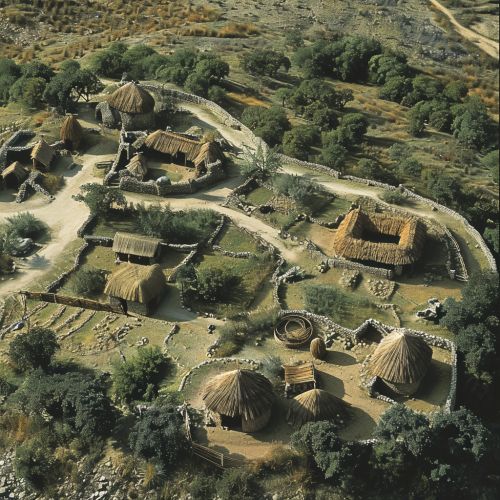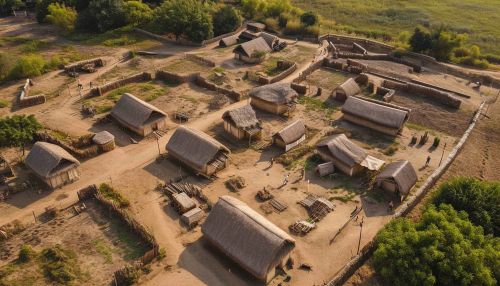Lechitic tribes
Origins and Early History
The Lechitic tribes are a group of West Slavic tribes who share a common ancestry and culture. They are named after the legendary patriarch, Lech, who is said to have founded the tribe. The Lechitic tribes include the Polans, Pomeranians, Silesians, and Masovians among others.


The Lechitic tribes originated in the area that is now modern-day Poland, in the late Iron Age. Around the 5th century AD, these tribes began to form distinct cultural and political entities, each with its own territory and leadership. The Polans, for instance, established their stronghold in Giecz and later in Poznań, while the Pomeranians were based along the Baltic coast.
Culture and Society
Lechitic society was agrarian, with farming and animal husbandry being the main occupations. The tribes lived in small, fortified settlements called gords, which were often located on hilltops or riverbanks for strategic reasons. The society was hierarchical, with the tribal leader, or the prince, at the top, followed by the warrior class, free peasants, and slaves.
The Lechitic tribes were pagans, with a pantheon of gods and goddesses that included Perun, the god of thunder and lightning, and Veles, the god of earth, waters, and the underworld. They practiced various rituals and sacrifices to appease these deities.
Political Structure
Each Lechitic tribe was an independent political entity, with its own prince who was chosen from the ruling dynasty. The prince was the supreme authority in matters of war and justice. However, he was assisted by a council of elders, who were influential members of the tribe.
The tribes often engaged in warfare with each other and with other Slavic and non-Slavic tribes. However, they also formed alliances for mutual defense and for conducting large-scale military campaigns.
Language and Writing
The Lechitic tribes spoke the Lechitic group of languages, which belong to the West Slavic branch of the Slavic languages. These languages, which include Polish, Silesian, and Kashubian, are characterized by several unique phonetic and grammatical features.
The tribes did not have a writing system and relied on oral tradition for preserving their history and culture. However, with the advent of Christianity in the 10th century, the Latin alphabet was adopted for writing the Lechitic languages.
Conversion to Christianity and Formation of the Polish State
In the 10th century, the Polans, under the leadership of their prince, Mieszko I, were converted to Christianity. This marked a turning point in the history of the Lechitic tribes, as it led to the formation of the Polish state.
Mieszko I, who was baptized in 966, adopted Christianity as the state religion and initiated the process of Christianization of the other Lechitic tribes. He also established a centralized political structure, with the prince as the absolute ruler.
Legacy
The Lechitic tribes have left a lasting legacy in the form of the Polish nation and the Polish language. The culture, traditions, and language of these tribes have significantly influenced the history and culture of Poland and other Central and Eastern European countries.
